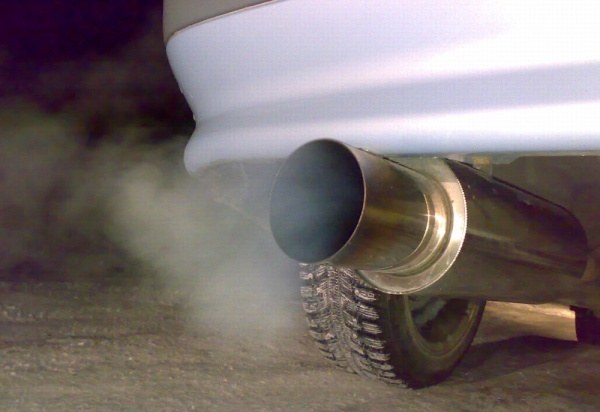Shots in the muffler can easily lead to rupture or damage of the resonator (resonators), which will result in material costs associated with buying new parts and installing a muffler on a car. Moreover, wrong adjustment engine will help bring down and more expensive parts than the muffler and resonators. For gasoline engines there are several reasons for the appearance of "fire", which could begin as a result of failure of one of the systems of the car.
Very loud in the muffler indicates that the fuel burns in the exhaust system. This can occur due to improper carb adjustment screw "quality mix"), in which the fuel mixture is getting too much gasoline. This leads to the fact that the fuel is not burned completely in the cylinders (at the time of the compression stroke) and "flies" straight to the muffler, where at high temperature ignited. Before carrying out the adjustments of the carb make sure the air filter is in good condition.
If the shots in the muffler is heard in all modes of engine operation (small, medium, large momentum), it makes sense to check of thermal backlashes in valves. The valve seat very tightly closes the entrance (exit) into the cylinders; decreasing the gap make it impossible - there is a gap. In result, the fuel mixture is partially leaking into the exhaust manifold, where the crashing lights. To get rid of the claps can be simply adjustment valves for each car model has its own gap. When performing adjustments, do not forget that when heated, the expansion of the metal, and the clearance at the engine is warm it becomes less than cool.
Too late ignition can also cause popping in the muffler. The reason – wrong adjustment of ignition timing. If it is configured correctly, the spark between the electrodes of the spark must occur at the moment when the piston overcomes the top dead center (or TDC). Ignition of the mixture pushes a piston; when you retard the ignition spark will appear when it's already gone down, the movement is accompanied by opening of the exhaust valve. As a result, the mixture ignites and "skips" through the open valve into the exhaust manifold, where it is cotton.
Power supply system (carb)
Very loud in the muffler indicates that the fuel burns in the exhaust system. This can occur due to improper carb adjustment screw "quality mix"), in which the fuel mixture is getting too much gasoline. This leads to the fact that the fuel is not burned completely in the cylinders (at the time of the compression stroke) and "flies" straight to the muffler, where at high temperature ignited. Before carrying out the adjustments of the carb make sure the air filter is in good condition.
Gas-distributing mechanism (GRM)
If the shots in the muffler is heard in all modes of engine operation (small, medium, large momentum), it makes sense to check of thermal backlashes in valves. The valve seat very tightly closes the entrance (exit) into the cylinders; decreasing the gap make it impossible - there is a gap. In result, the fuel mixture is partially leaking into the exhaust manifold, where the crashing lights. To get rid of the claps can be simply adjustment valves for each car model has its own gap. When performing adjustments, do not forget that when heated, the expansion of the metal, and the clearance at the engine is warm it becomes less than cool.
Ignition system
Too late ignition can also cause popping in the muffler. The reason – wrong adjustment of ignition timing. If it is configured correctly, the spark between the electrodes of the spark must occur at the moment when the piston overcomes the top dead center (or TDC). Ignition of the mixture pushes a piston; when you retard the ignition spark will appear when it's already gone down, the movement is accompanied by opening of the exhaust valve. As a result, the mixture ignites and "skips" through the open valve into the exhaust manifold, where it is cotton.
